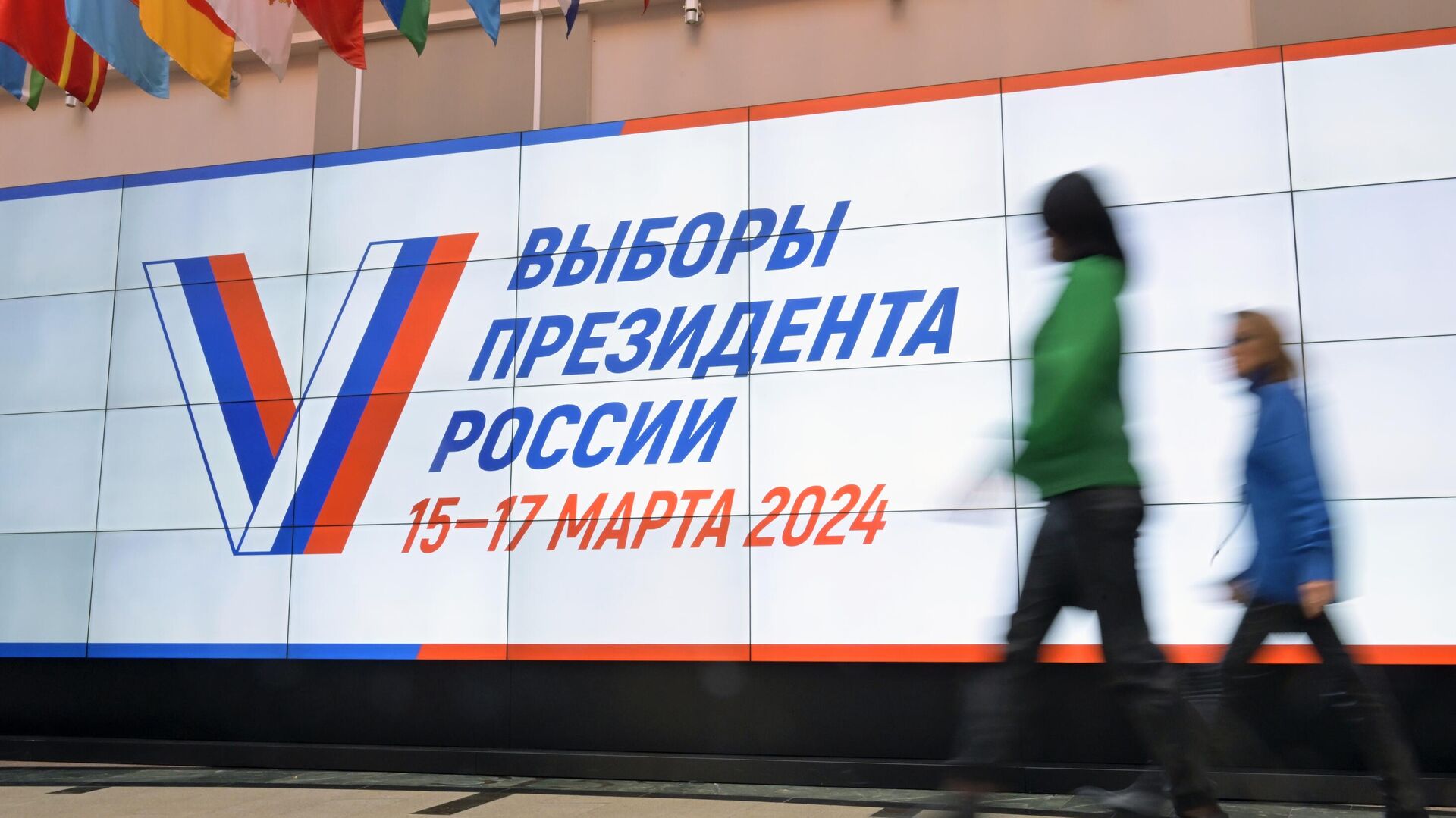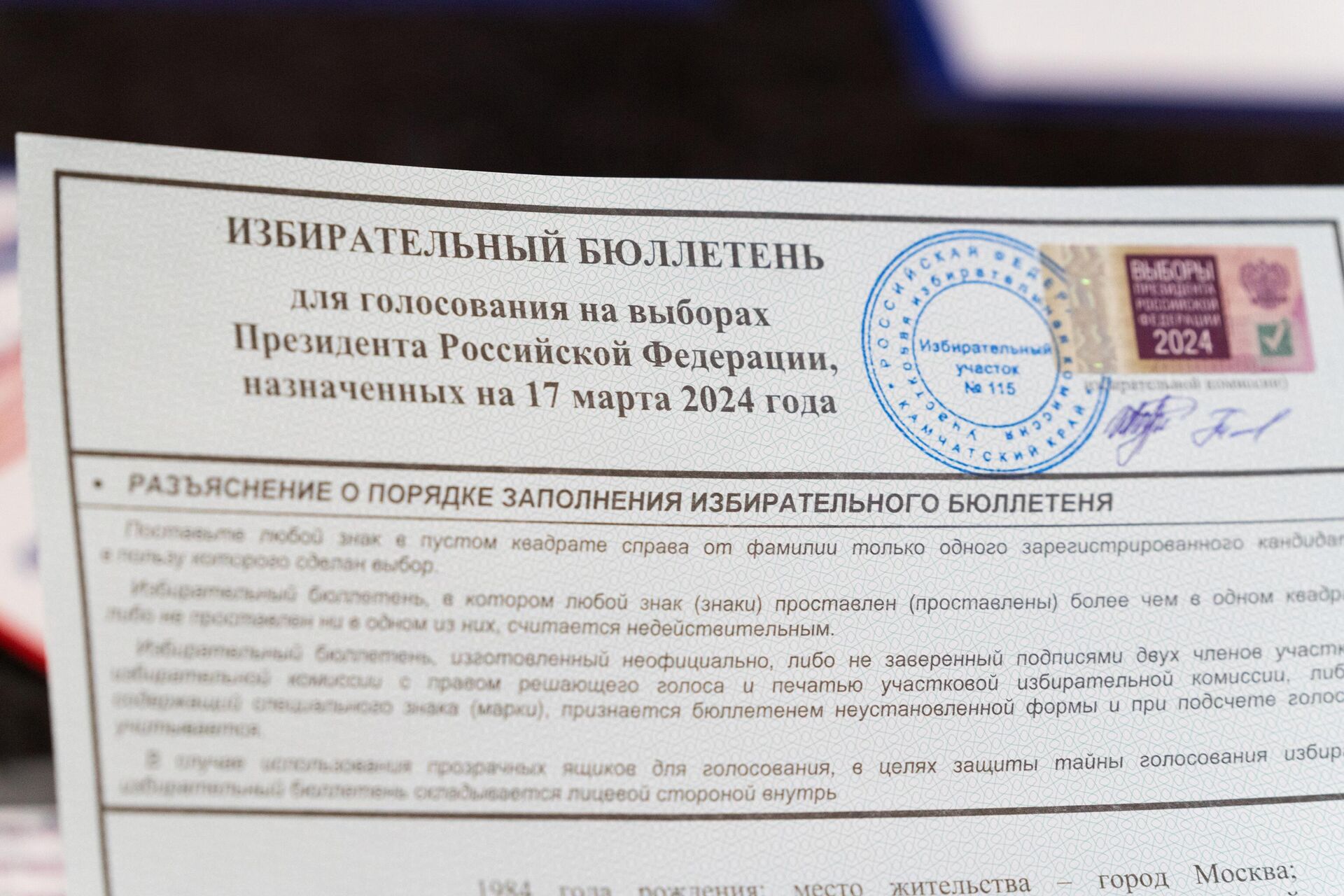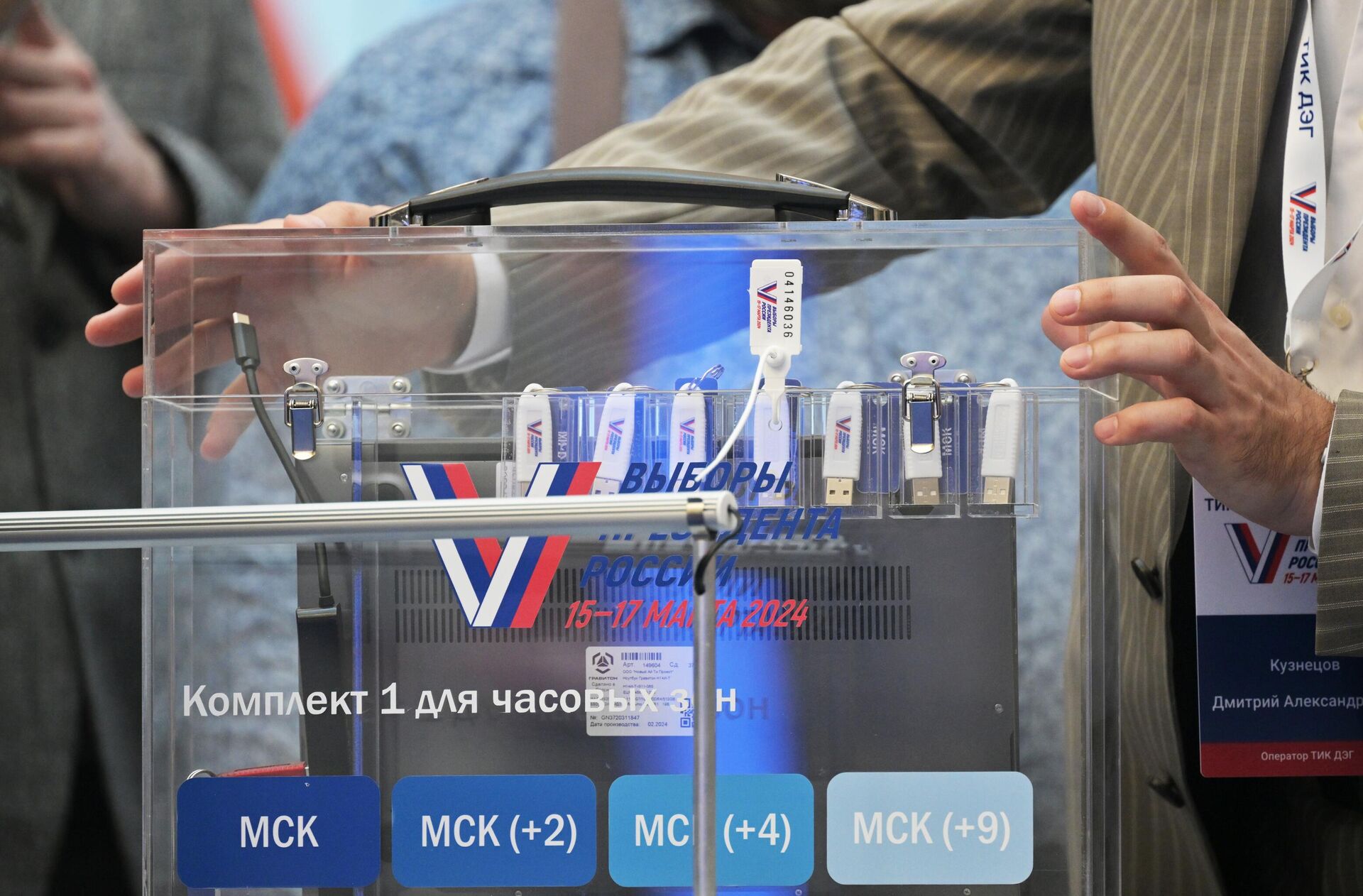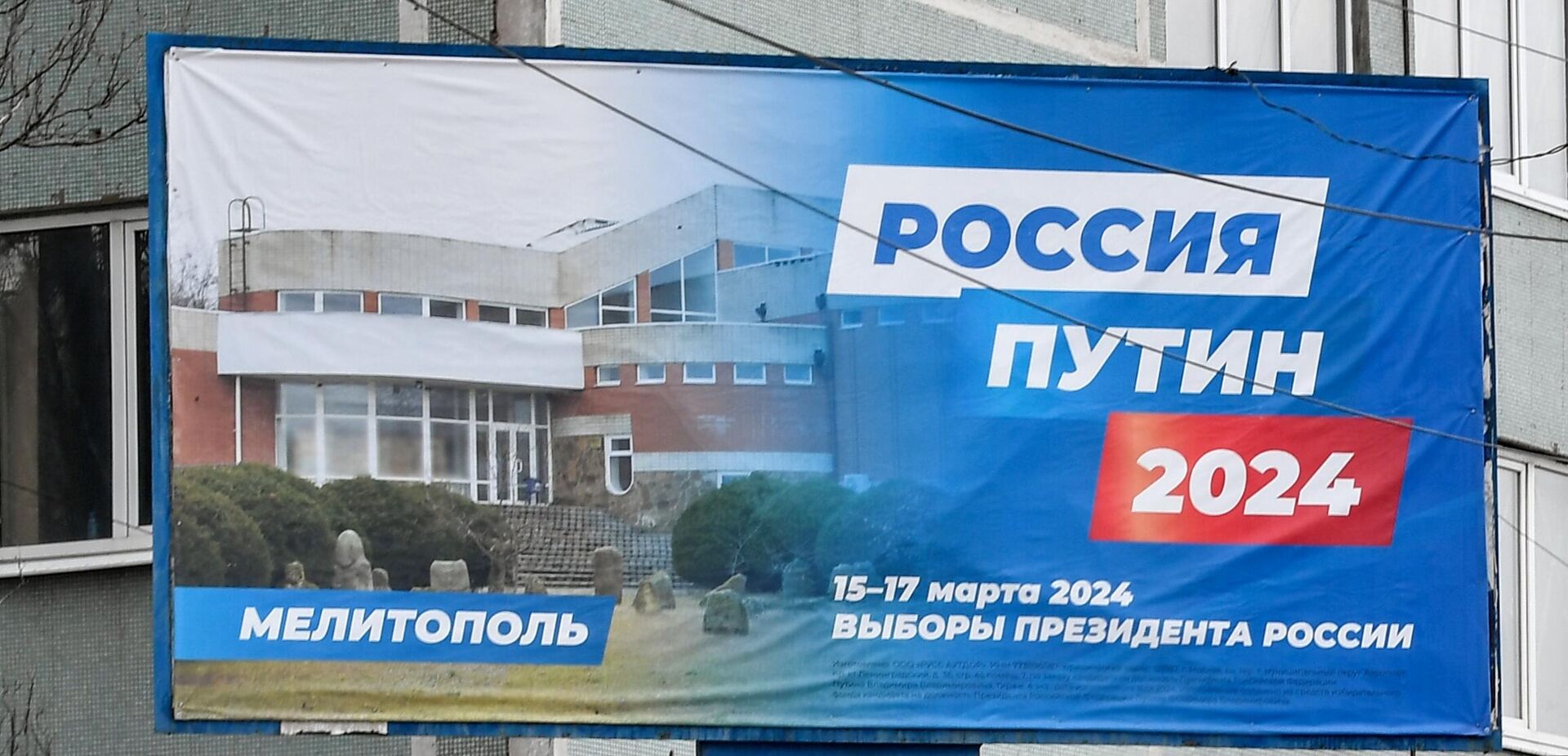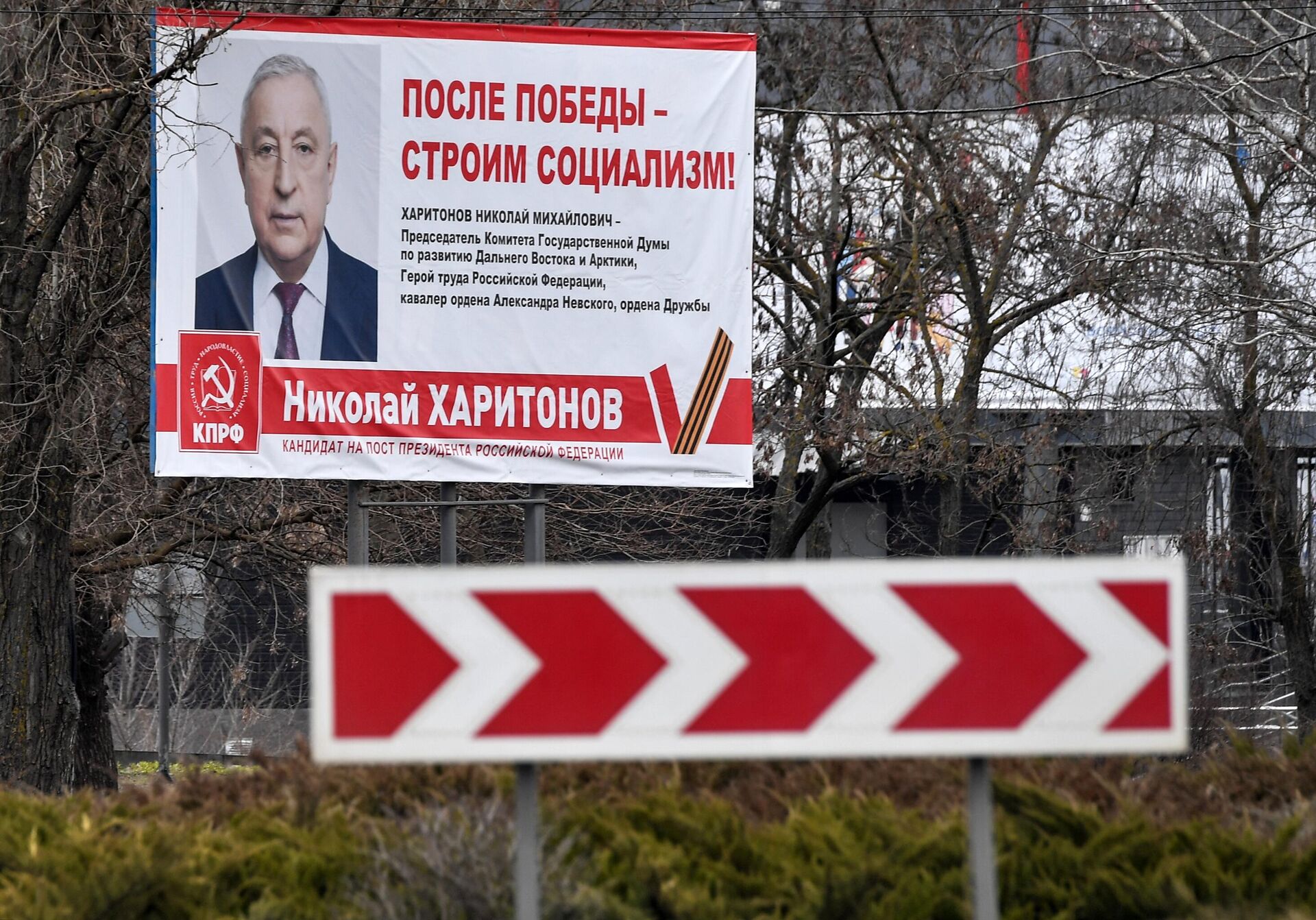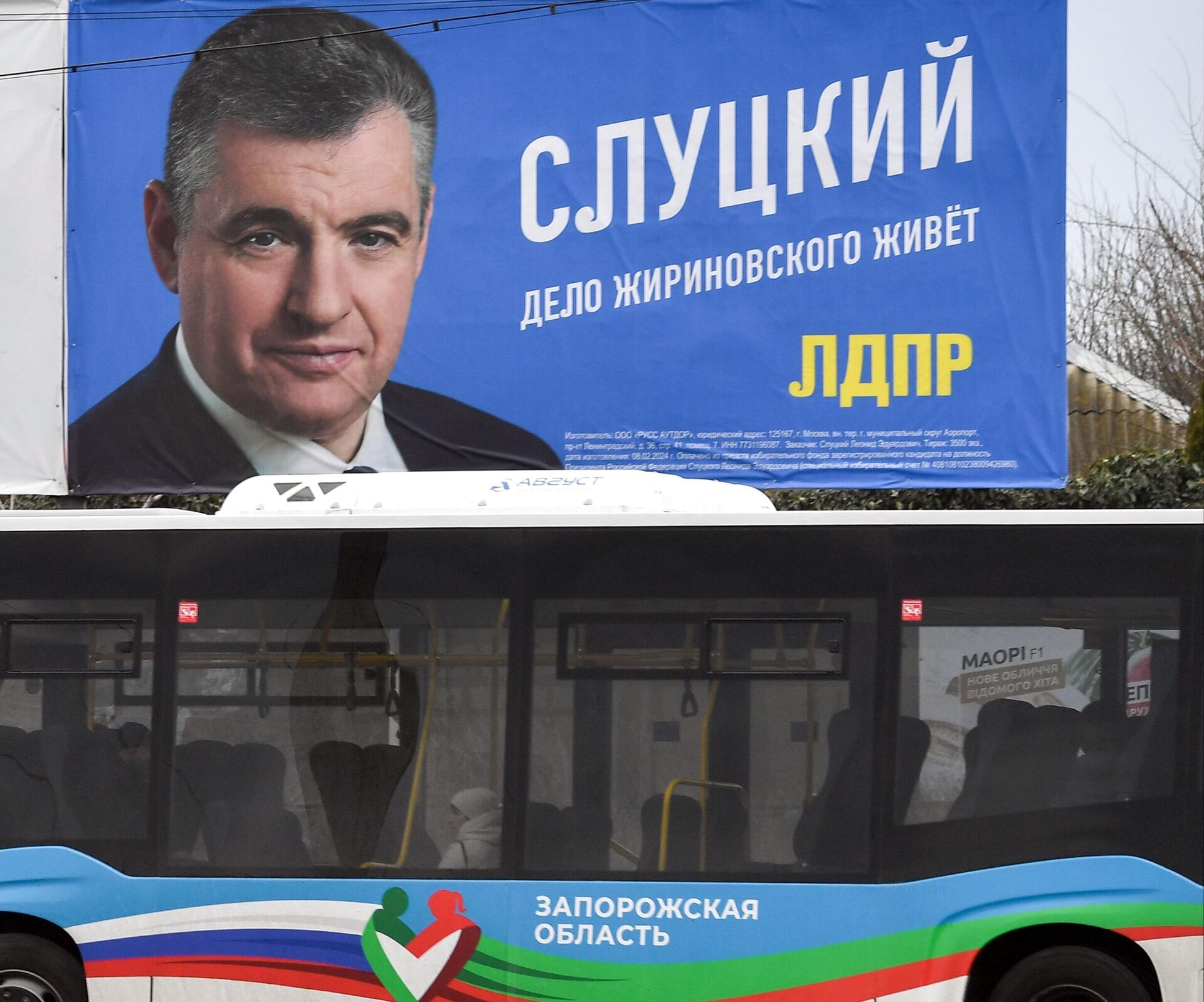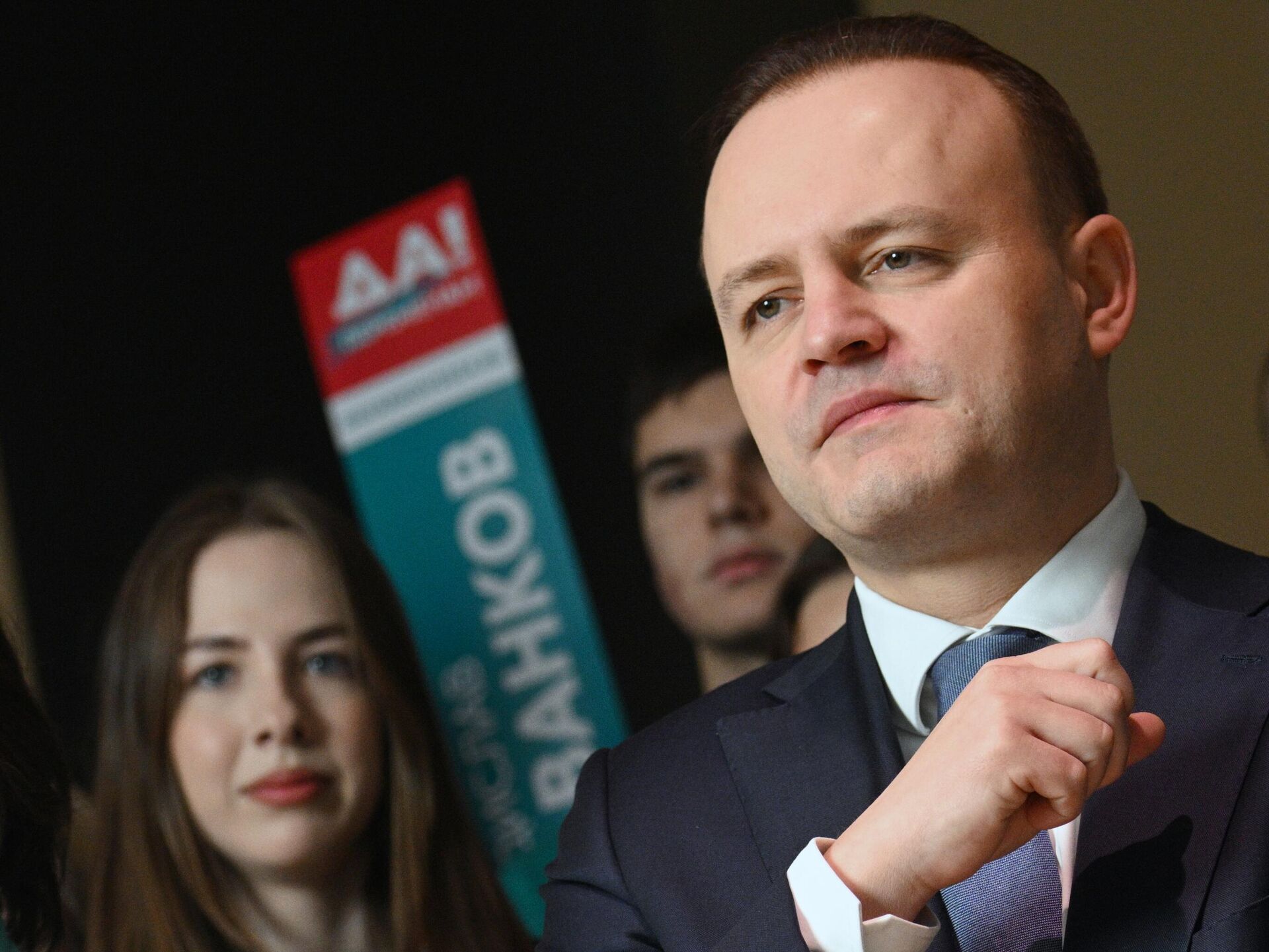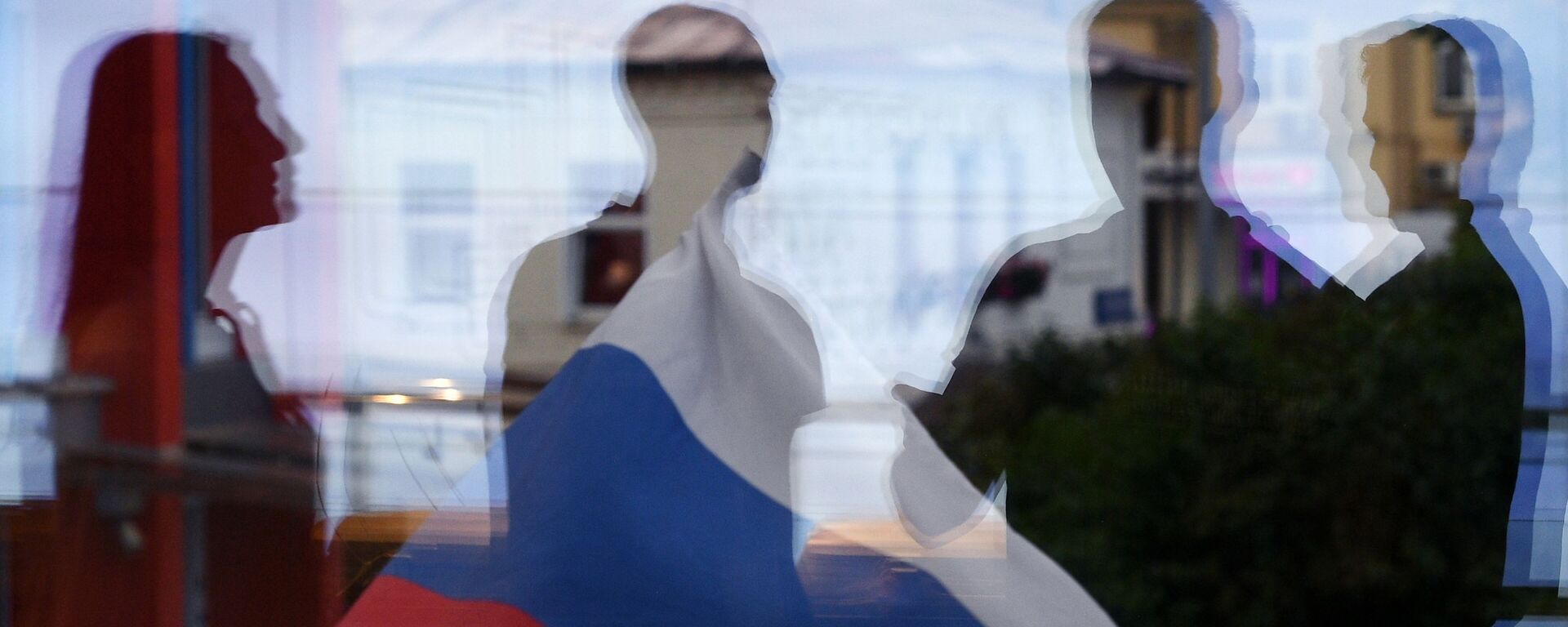https://sputnikglobe.com/20240314/everything-you-need-to-know-about-russias-presidential-elections--1117329708.html
Everything You Need to Know About Russia’s Presidential Election
Everything You Need to Know About Russia’s Presidential Election
Sputnik International
From March 15 to 17, Russian citizens will elect a the President of the Russian federation.
2024-03-14T17:21+0000
2024-03-14T17:21+0000
2024-03-28T12:40+0000
russia
russia
vladimir putin
leonid slutsky
ella pamfilova
central election commission
electronic voting system
2024 russian presidential election
presidential election
https://cdn1.img.sputnikglobe.com/img/07e8/03/0e/1117325932_0:201:2927:1847_1920x0_80_0_0_b570cacf197c6b0c6470a8473a26f48b.jpg
Early voting for Russia's 2024 Presidential Election, the eighth in the nation's modern history, commenced on February 25. This enables Russian citizens who are unable to physically visit regular polling stations due to living or working in extreme or hard-to-reach locations to cast their ballots until March 14. Additionally, Russian citizens living abroad began heading to the polls on March 1.The main event in the elections will be held throughout Russia, across its vast geographic expanse, as well as at sea, encompassing the nation in its entirety from the Far North, to the special military operation zone and Russia's new regions, and even aboard ships way out in the Sea of Okhotsk.On March 15 and 16, mobile polling stations will be strategically placed near the special operation zone, covering the areas of the Donetsk, Lugansk, Zaporozhye, Kherson, Belgorod, Bryansk, and Kursk regions, as well as Crimea. This initiative is designed to ensure that citizens residing in these areas have easy access to the voting process.Voter turnout at the previous presidential elections in 2018 was at 67.5%. This year, turnout is expected to be at 71%, the Russian Public Opinion Research Center (VCIOM) predicts.How Does Russia Elect Its President?The president of the Russian Federation is elected for a term of six years by citizens of the Russian Federation through universal, equal and direct suffrage by secret ballot. The presidential election is held in the single federal electoral district that comprises the entire territory of the Russian Federation.The Russian Federation Council, or upper house of parliament, officially designated March 17, 2024, as the day of the presidential election. The Russian Central Election Commission (CEC) subsequently announced that the voting would take place over three days on March 15-17.“Three-day voting is already becoming a tradition in our electoral system… It was first used during the [Covid-19] pandemic, but over time the majority of voters came to like the format because of its other advantages,” said Russia’s Central Election Commission (CEC) chairwoman Ella Pamfilova.What’s New About 2024 Elections?This time around, an E-voting, remote electronic voting system, is being used for the first time to elect Russia's president, according to a decision made by the Central Election Commission. Voters in 28 Russian regions will be able to cast their ballots remotely.Online e-voting will be available in the city of Moscow and the surrounding Moscow Region, in the Altai, Arkhangelsk, Belgorod, Chelyabinsk, Chuvash, Kaliningrad, Kaluga, Kamchatka, Karelia, Kursk, Lipetsk, Murmansk, Nenets, Nizhny Novgorod, Novgorod, Novosibirsk, Perm, Pskov, Rostov, Sverdlovsk, Tomsk, Vladimir, Vologda, Voronezh and Yaroslavl regions, as well as in Crimea.In order to cast a ballot remotely using the electronic voting system, a voter was required to submit an application between January 29 and March 11, within a period of 45 days leading up to start of the Election Days.Electronic Ballot Processing System (EBPC) This innovative ballot processing system is a sophisticated e-system that uses a special scanner to read and process marked paper ballots and tally the results. EBPC is a hardware and software complex that counts the votes and automatically carries out standard procedures provided for in electoral legislation. The protocol of the election commission can be displayed on the printer connected to the EBPC, which is automatically sent to the higher election commission. Mobile Voter The Mobile Voter mechanism gives Russian citizens the opportunity to vote at a polling station different from the one based on their home address. The system also enables citizens to vote online, unless this option is unavailable in a certain region of the country. In both cases an official application must be submitted prior to the election. Election State Automated System The Election state automated system is information software that ensures that ballots are counted in an accurate and rapid manner. The system facilitates the process at all stages, including planning and preparation, registration of voters, processing details about the candidates, carrying out the voting, as well as its summarizing and final statistical processing.Who Can Run For President in Russia?Citizens of Russia who are not younger than 35 years and have permanently resided in Russia for at least 10 years may be elected president. The following Russian citizens are not entitled to run for office:Who Can Vote in Russia's Presidential Elections?According to the Central Election Commission, there are 112.3 million eligible voters inside Russia, and around 1.9 million eligible voters who reside abroad.Those, who have been declared incompetent by a court or are serving a prison term by a court verdict, are not allowed to take part in electoral activities. Who's Running in Russia's 2024 Presidential Race?There are four candidates vying for the top office:All candidates running in the presidential race have a higher education, with Putin specializing in law, Davankov in history, Slutsky in management, and Kharitonov in agrarian studies. In terms of academic degrees, Putin and Kharitonov hold doctorates in economics, Kharitonov also holds one in sociology, while Slutsky is a doctor of economics.Age-wise, Nikolai Kharitonov is the oldest candidate at 75, while Vladislav Davankov, who will turn 40 on March 17, 2024, is the youngest presidential contender. While Leonid Slutsky and Vladislav Davankov are newcomers to the presidential race, the other two other contenders have prior experience in running for the nation's top office. Vladimir Putin has participated in four presidential elections, while Nikolay Kharitonov threw his hat into the ring in 2004. Who Will Observe the Voting Process?Election observers are citizens who monitor compliance of election procedure with the law, supervise the process and record possible violations. Election observers have the right to: Delegations of international observers from 36 countries have arrived in Russia, including from 30 national parliaments, as well as from 5 international organizations. Among them are the CIS Interparliamentary Assembly of Member Nations, the Parliamentary Assembly of the Collective Security Treaty Organization (PA CSTO), the ASEAN Inter-Parliamentary Assembly, the Organization of Islamic Cooperation, and the Central American Parliament (PARLACEN).In total, more than 200 parliamentary observers have been accredited, in addition to dozens electoral experts.
https://sputnikglobe.com/20200701/from-adoption-in-1993-to-the-present-day-a-history-of-the-russian-constitution-1079769577.html
russia
Sputnik International
feedback@sputniknews.com
+74956456601
MIA „Rossiya Segodnya“
2024
News
en_EN
Sputnik International
feedback@sputniknews.com
+74956456601
MIA „Rossiya Segodnya“
Sputnik International
feedback@sputniknews.com
+74956456601
MIA „Rossiya Segodnya“
russian presidential elections, who is running in russia's presidential elections, which candidates are running in russia's presidential elections, who will win in russia's presidential elections, will putin win the elections, how are russia's presidential elections run, how are russia's presidential elections organized, who are the four candidates in russia's presidential election
russian presidential elections, who is running in russia's presidential elections, which candidates are running in russia's presidential elections, who will win in russia's presidential elections, will putin win the elections, how are russia's presidential elections run, how are russia's presidential elections organized, who are the four candidates in russia's presidential election
Everything You Need to Know About Russia’s Presidential Election
Longread
Millions of Russian citizens will head to the polls March 15-17 as the country holds its 2024 presidential election.
Early voting for Russia's 2024 Presidential Election, the eighth in the nation's modern history, commenced on February 25. This enables Russian citizens who are unable to physically visit regular polling stations due to living or working in extreme or hard-to-reach locations to cast their ballots until March 14. Additionally, Russian citizens living abroad began heading to the polls on March 1.
The main event in the elections will be held throughout Russia, across its vast geographic expanse, as well as at sea, encompassing the nation in its entirety from the Far North, to the special military operation zone and
Russia's new regions, and even aboard ships way out in the Sea of Okhotsk.
On March 15 and 16, mobile polling stations will be strategically placed near the special operation zone, covering the areas of the Donetsk, Lugansk, Zaporozhye, Kherson, Belgorod, Bryansk, and Kursk regions, as well as Crimea. This initiative is designed to ensure that citizens residing in these areas have easy access to the voting process.
Voter turnout at the previous presidential elections in 2018 was at
67.5%. This year, turnout is
expected to be at
71%, the Russian Public Opinion Research Center (VCIOM) predicts.
How Does Russia Elect Its President?
The legislative framework governing Russia's presidential elections consists of the Constitution, the Federal Law on Basic Guarantees of Electoral Rights and the Right of Citizens of the Russian Federation to Participate in a Referendum, the Federal Law on the Election of the President of the Russian Federation, and various other related laws.
The president of the Russian Federation is elected for a term of six years by citizens of the Russian Federation through universal, equal and direct suffrage by secret ballot. The presidential election is held in the single federal electoral district that comprises the entire territory of the Russian Federation.
The Russian Federation Council, or upper house of parliament, officially designated March 17, 2024, as the day of the presidential election. The Russian Central Election Commission (CEC) subsequently announced that the voting would take place over three days on March 15-17.
“Three-day voting is already becoming a tradition in our electoral system… It was first used during the [Covid-19] pandemic, but over time the majority of voters came to like the format because of its other advantages,” said Russia’s Central Election Commission (CEC) chairwoman Ella Pamfilova.
What’s New About 2024 Elections?
This time around, an E-voting, remote electronic voting system, is being used for the first time to elect Russia's president, according to a decision made by the Central Election Commission. Voters in 28 Russian regions will be able to cast their ballots remotely.
Online e-voting will be available in the city of Moscow and the surrounding Moscow Region, in the Altai, Arkhangelsk, Belgorod, Chelyabinsk, Chuvash, Kaliningrad, Kaluga, Kamchatka, Karelia, Kursk, Lipetsk, Murmansk, Nenets, Nizhny Novgorod, Novgorod, Novosibirsk, Perm, Pskov, Rostov, Sverdlovsk, Tomsk, Vladimir, Vologda, Voronezh and Yaroslavl regions, as well as in Crimea.
In order to cast a ballot remotely using the electronic voting system, a voter was required to submit an application between January 29 and March 11, within a period of 45 days leading up to start of the Election Days.
Electronic Ballot Processing System (EBPC)
This innovative ballot processing system is a sophisticated e-system that uses a special scanner to read and process marked paper ballots and tally the results. EBPC is a hardware and software complex that counts the votes and automatically carries out standard procedures provided for in electoral legislation. The protocol of the election commission can be displayed on the printer connected to the EBPC, which is automatically sent to the higher election commission.
The Mobile Voter mechanism gives Russian citizens the opportunity to vote at a polling station different from the one based on their home address. The system also enables citizens to vote online, unless this option is unavailable in a certain region of the country. In both cases an official application must be submitted prior to the election.
Russian citizens have submitted over 5 million applications to vote through the Mobile Voter system, and over 4 million applications to vote remotely, CEC Head Ella Pamfilova noted.
Election State Automated System
The Election state automated system is information software that ensures that ballots are counted in an accurate and rapid manner. The system facilitates the process at all stages, including planning and preparation, registration of voters, processing details about the candidates, carrying out the voting, as well as its summarizing and final statistical processing.
Who Can Run For President in Russia?
Citizens of Russia who are not younger than 35 years and have permanently resided in Russia for at least 10 years may be elected president.
The following Russian citizens are not entitled to run for office:
Those sentenced to prison for a serious crime and/or felony and who have a conviction that has not been expunged or spent by Election Day;
Those whose conviction for a serious crime has been expunged or spent less than 10 years before Election Day;
Those whose conviction for a felony has been expunged or spent less than 15 years before Election Day;
Those sentenced for committing extremist crimes under the Criminal Code of the Russian Federation and who have on Election Day a conviction that has not been expunged or spent;
Those who have been administratively punished for promoting extremism or for producing and distributing extremist materials, if the voting is conducted before the end of the period of this person’s administrative punishment;
Those who have been sentenced by a court for violations of the Federal Law On Combating Extremist Activities, if said violations or activities took place within six years of Election Day.
Who Can Vote in Russia's Presidential Elections?
According to the Central Election Commission, there are 112.3 million eligible voters inside Russia, and around 1.9 million eligible voters who reside abroad.
Citizens of Russia, who have reached the age of 18 by Election Day, have the right to vote for the president of Russia.
Citizens of Russia, who reside or are traveling abroad during the election campaign and on Election Day, have equal rights with all the other citizens of the Russian Federation to elect the president.
Those, who have been declared incompetent by a court or are serving a prison term by a court verdict, are not allowed to take part in electoral activities.
Who's Running in Russia's 2024 Presidential Race?
There are four candidates vying for the top office:
Self-nominated candidate and incumbent President of the Russian Federation
Vladimir Putin;
Communist Party of the Russian Federation (CPRF) nominee
Nikolai Kharitonov;Liberal Democratic Party of Russia (LDPR) nominee
Leonid Slutsky;New People party nominee
Vladislav Davankov.All candidates running in the presidential race have a higher education, with Putin specializing in law, Davankov in history, Slutsky in management, and Kharitonov in agrarian studies. In terms of academic degrees, Putin and Kharitonov hold doctorates in economics, Kharitonov also holds one in sociology, while Slutsky is a doctor of economics.
Age-wise, Nikolai Kharitonov is the oldest candidate at 75, while Vladislav Davankov, who will turn 40 on March 17, 2024, is the youngest presidential contender.
While Leonid Slutsky and Vladislav Davankov are newcomers to the presidential race, the other two other contenders have prior experience in running for the nation's top office. Vladimir Putin has participated in four presidential elections, while Nikolay Kharitonov threw his hat into the ring in 2004.
Who Will Observe the Voting Process?
Election observers are citizens who monitor compliance of election procedure with the law, supervise the process and record possible violations.
Election observers have the right to:
be present at the polling stations on the day of voting;
supervise the counting process and how ballot papers are issued;
get acquainted with the protocol of the election commission on the voting results and receive a certified copy of it;
address proposals and comments on the voting process to the voting commission;
appeal decisions and actions (or lack thereof) of the election commission to the higher election commission or a court.
Delegations of international observers from 36 countries have arrived in Russia, including from 30 national parliaments, as well as from 5 international organizations. Among them are the CIS Interparliamentary Assembly of Member Nations, the Parliamentary Assembly of the Collective Security Treaty Organization (PA CSTO), the ASEAN Inter-Parliamentary Assembly, the Organization of Islamic Cooperation, and the Central American Parliament (PARLACEN).
In total, more than 200 parliamentary observers have been accredited, in addition to dozens electoral experts.
